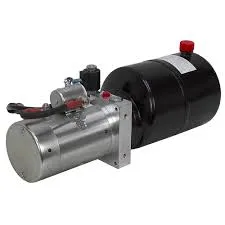Aug . 19, 2024 02:07 Back to list
High-Quality Hydraulic Cylinder Tubes for Optimal Performance and Durability
The Importance of Hydraulic Cylinder Tubes in Modern Machinery
Hydraulic cylinders are essential components in various industries, powering machinery that performs heavy lifting, pushing, and pulling operations. At the heart of these cylinders is the hydraulic cylinder tube, a crucial element that enables the efficient functioning of hydraulic systems. In this article, we delve into the significance of hydraulic cylinder tubes, their construction, applications, and why they are indispensable in modern machinery.
Understanding Hydraulic Cylinder Tubes
Hydraulic cylinder tubes are typically manufactured from high-strength materials, such as steel or aluminum, designed to withstand significant pressures and stresses during operation. The primary function of the tube is to house the piston and provide a passage for hydraulic fluid. When hydraulic fluid is pumped into the cylinder, it exerts pressure on the piston, resulting in linear motion that can drive other mechanical parts.
The design of hydraulic cylinder tubes must account for various factors, including the operating pressure, temperature, and the specific application requirements. Precision engineering is essential to ensure that these tubes can handle the forces acting upon them without deforming or failing.
Key Features and Benefits
1. Strength and Durability Hydraulic cylinder tubes are engineered to endure high pressures, often exceeding several thousand psi. The materials used are chosen specifically for their strength and resistance to wear, ensuring a long operational life even under demanding conditions.
2. Corrosion Resistance Many hydraulic systems operate in environments where exposure to moisture and contaminants is inevitable. Therefore, hydraulic cylinder tubes are often treated with protective coatings or made from stainless steel to prevent corrosion, thus enhancing their durability.
hydraulic cylinder tube product

3. Precision Engineering The internal diameter of the hydraulic cylinder tube must be precisely machined to allow for smooth movement of the piston. Any imperfections can lead to air leaks, inefficient operation, or even complete system failure.
4. Customizability Manufacturers can customize hydraulic cylinder tubes to meet specific application requirements. This includes varying lengths, diameters, wall thicknesses, and finishes, enabling them to cater to a diverse range of industries, from construction to manufacturing and agriculture.
Applications Across Industries
Hydraulic cylinder tubes play a vital role in myriad applications. In the construction industry, they power excavators, bulldozers, and cranes, enabling heavy equipment to lift and move materials with ease. In manufacturing, hydraulic systems drive presses, conveyor belts, and automated machinery, improving efficiency and productivity.
Additionally, agriculture relies heavily on hydraulic systems for tractors and harvesters, where hydraulic cylinder tubes contribute to functions such as lifting plows and controlling attachments. The automotive industry also benefits from hydraulic systems in braking mechanisms and lift systems.
Conclusion
Hydraulic cylinder tubes are a foundational element in the realm of hydraulic technology, with applications spanning numerous industries. Their ability to provide reliable, strong, and efficient performance makes them indispensable in modern machinery. As technology continues to advance, the manufacturing of hydraulic cylinder tubes will evolve, embracing new materials and designs to meet the ever-growing demands of various sectors. Understanding the importance of these tubes not only highlights their role in mechanical systems but also underscores the need for quality engineering to ensure safety, efficiency, and longevity in hydraulic applications.
-
Fork Lift Power Units - Hebei Shenghan | Efficiency, Reliability
NewsJul.13,2025
-
1.5-Ton Turbocharged Cylinder-Hebei Shenghan|Hydraulic Solution,Energy Efficiency
NewsJul.13,2025
-
Auto Hoist Power Units-Hebei Shenghan|Efficiency&Industrial Lifting
NewsJul.13,2025
-
Double Acting Power Units-Hebei Shenghan|Hydraulic Solutions,Industrial Efficiency
NewsJul.13,2025
-
1.5 Ton Lifting Cylinder 70/82-40-290-535 - High-Performance Hydraulic Solution | Hebei Shenghan
NewsJul.13,2025
-
Fork Lift Power Units - Hebei Shenghan | Efficiency&Reliability
NewsJul.13,2025
